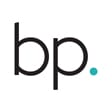Break-Even Point
Definition
The Break-Even Point in business finance is a critical analysis point where total revenues precisely equal total expenses, resulting in no profit or loss.
Break-even serves as a fundamental financial benchmark, helping businesses determine the volume of sales needed to cover all operating costs. Calculating the break-even point involves assessing fixed and variable costs in relation to revenue, making it an essential tool for financial planning and decision-making. For startups and established businesses alike, understanding the break-even point is key to setting realistic sales targets, formulating pricing strategies, and evaluating the overall financial health of the venture.
To calculate the break-even point, divide the total fixed costs by the difference between the price per unit and the variable cost per unit. This formula yields the number of units that need to be sold to cover all operational costs.
Significance in Planning:
- The break-even analysis aids businesses in establishing sales objectives and pricing policies.
- It’s a crucial metric for investors and lenders to assess a business’s risk and sustainability.
Entrepreneurial Implications:
- For entrepreneurs, especially in startup scenarios, break-even analysis helps predict when the business will start generating profit and is crucial in demonstrating financial viability in business plans.
- The analysis is vital in guiding decisions related to cost management, pricing strategies, and allocating resources for marketing and sales.
Two Perspectives of Break-Even in Startups:
- Time-Based Break-Even: This refers to the point in time when cumulative revenues surpass cumulative expenses, including initial startup expenditures While fixed asset purchases are not included, the expenses include depreciation. It’s a milestone indicating when a startup recovers its initial investment.
- Profit-Based Break-Even: This is the point where a startup begins to generate a profit in a given period, marking a shift from just covering costs to actual financial gain.
Frequently Asked Questions
- How does understanding the break-even point benefit a startup in its early stages?
For a startup, understanding the break-even point is instrumental in financial planning. It informs entrepreneurs about how long it will take to recover initial investments and when the business will start being financially self-sustaining. This knowledge is critical for setting realistic goals, managing cash flow, and communicating the business’s potential to investors.
- Can the break-even point be used to make pricing decisions?
Yes, the break-even analysis can play a crucial role in setting product prices. By understanding the costs involved and the sales volume needed to cover those costs, businesses can more effectively determine pricing strategies that ensure profitability while remaining competitive in the market.
- How long does it take for a business to reach its break-even point?
The timeframe for reaching the break-even point varies significantly depending on several factors. These include the nature of the business, startup costs, fixed and variable expenses, pricing strategies, and the volume of sales. For some businesses, especially those with lower initial costs or high demand, the break-even point might be achieved relatively quickly. For others, particularly those requiring substantial upfront investment or in competitive markets, it might take longer. Ultimately, the specific business model, market conditions, and effective management of costs and revenues will dictate the time needed to reach the break-even point. Entrepreneurs should conduct thorough financial planning and market analysis to estimate this timeframe more accurately.
Related Terms
Also see: Fixed Costs, Operating Expenses, Working Capital, Net Profit

